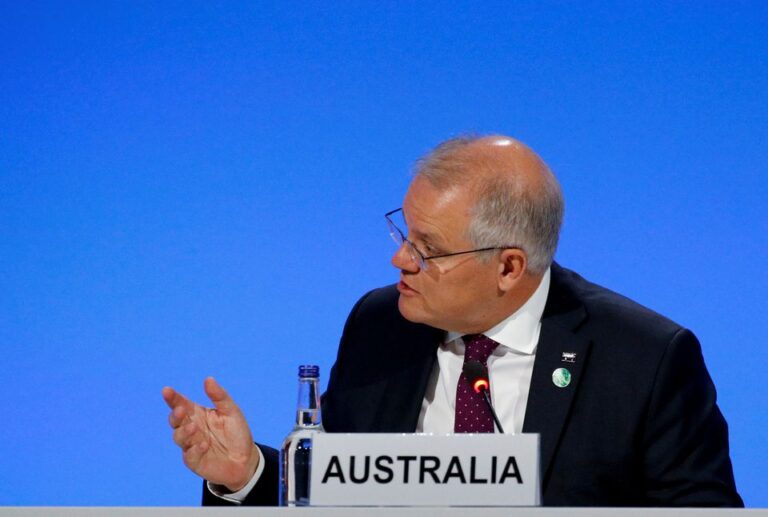
SYDNEY/MELBOURNE, (Reuters) – The Australian government on Tuesday pledged A$178 million ($132 million) to ramp up the rollout of hydrogen refuelling and charging stations for electric vehicles (EVs), a measure that critics say falls well short of global best practice.
Green activists and EV advocates have called for tax breaks and sales targets to boost the uptake of cleaner vehicles in a country where transport is the third largest source of greenhouse gas emissions.
Prime Minister Scott Morrison said the investment provides “an Australian way” to lower transport emissions, reiterating a slogan he introduced recently to describe the country’s middle ground on climate change policy.
“We will not be forcing Australians out of the car they want to drive or penalising those who can least afford it through bans or taxes,” Morrison said in a statement.
“Instead, the strategy will work to drive down the cost of low and zero emission vehicles.”
The strategy should lower carbon emissions by more than 8 million tonnes by 2035, the government said, based on a projection that battery electric and plug-in hybrid electric vehicles will make up 30% of annual new car and light truck sales by 2030.
However, the Electric Vehicle Council called the strategy a “fizzer”, saying it should have at least included fuel efficiency standards and EV rebates to give Australians more choice.
“If Australia continues to be one of the only developed nations without fuel efficiency standards then we will continue to be a dumping ground for the world’s dirtiest vehicles,” council Chief Executive Behyad Jafari said in a statement.
Morrison in 2019 slammed a proposal by the opposition Labor Party to target half of all new car sales to be electric by 2030, saying the policy would “end the weekend” for Australians who want to tow their trailers and boats to go camping.
Battery electric and plug-in hybrid vehicle sales in Australia hit a record 8,688 in the first half of 2021, but made up just 1.6% of total light vehicle sales. In Norway, the global leader in switching to low emission cars, battery electric vehicle sales made up nearly 80% of new car sales in September.
The transport infrastructure funding was announced just weeks after Morrison adopted a net zero carbon emissions target by 2050 in the face of international criticism that the major coal and gas producer was not doing enough to address climate change.






